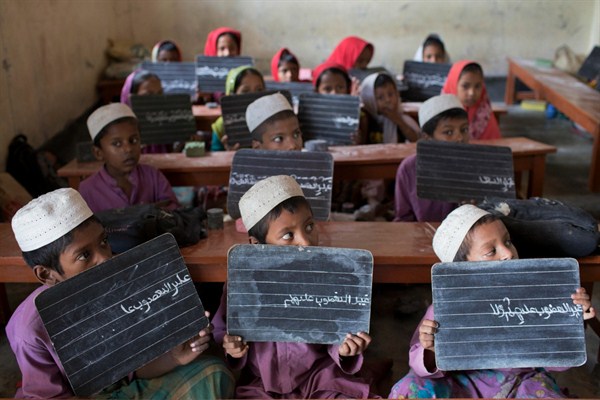Editor’s Note: This article is part of an ongoing series about education policy in various countries around the world.
Since independence in 1971, Bangladesh has made several attempts to reform its education system. Despite some false starts, it has made important strides. Yet obstacles to reform have proved challenging, especially the bifurcated Islamic madrasa system that leaves millions of students unprepared for life outside of religious institutions. In an email interview, Md Shahnawaz Khan Chandan, an education activist and feature writer at The Daily Star in Dhaka, examines the short history of education reform in Bangladesh, its myriad successes and failures, and how the government has tried to bridge the divide between secular and Islamic education.
WPR: Bangladesh has made several attempts to institute a comprehensive, liberal education policy since its independence in 1971. Has its education system met these goals?

